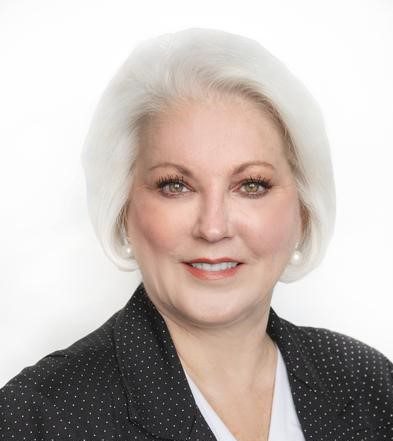By Charlotte Lacroix DVM, JD
Veterinary Business Advisors, Inc.
As a horse owner and/or trainer, you know the expenses involved in the upkeep of equine animals, not the least of which is medical care. It’s only natural to brainstorm about ways to cut costs and you may ask yourself these questions, among others:
Should I price shop at Internet-based pharmacies?
Should I investigate getting less expensive formulations of these drugs online or through a compounding pharmacy?
Is there any real advantage to FDA-approved drugs that I get through my veterinarian?
If you’ve found yourself going through these thought processes – and even following through and using, say, Internet-based pharmacies – then it’s crucial that you read this article to have a better understanding of the:
shortcomings of Internet pharmacies
dangers of inappropriate compounding
quality processes that FDA-approved drugs undergo
liability for trainers and/or barn owners if an injury occurs under your care and you chose a poor quality source of medication
Internet Pharmacies
Inverting order of process
Internet pharmacies are a key component of the emergent ethic of do-it-yourself medicine, wherein certain online-based pharmacies aggressively solicit business, and thereby invert the appropriate order of events leading to procuring a drug prescription, and undermining the necessity of proper veterinary medical care. Clients calling the 1-800-PetMeds web site, as one example, are requested to provide the name and phone number of the customer’s veterinarian along with an offer to get the prescription for free. The requirement of a mailed or faxed delivery of the prescription is not mentioned.
Such a set-up discourages regular veterinarian visits, as there is a perceived lack of need to visit the veterinarian when another company will handle the situation, free of charge. Commercials for these online pharmacies seems to imply that the veterinary exam is unnecessary and a nuisance. Although online pharmacies may have cheaper prices, your horse’s veterinarian has an intimate knowledge of your horse’s health: from existing medical conditions to previous adverse drug reactions to the dangers of combining certain medications.
Illegal medicines
Yet, as troublesome as these issues described above are, another issue exists with the potential for much more harm: Internet pharmacies that intentionally or inadvertently obtain medications that are not FDA approved. According to the FDA brochure titled, Purchasing Pet Drugs Online: Buyer Beware, while some online pharmacies are legitimate and reputable, others are fronts for unscrupulous businesses operating outside the law. The latter often sell unapproved and/or counterfeit drugs, make fraudulent claims, dispense medications without prescriptions and pass off expired drugs.i
Even if you submit an Rx from your veterinarian to one of these Internet pharmacies, the reality is that the most commonly prescribed drugs – including Gastrogard, Prascend, Sucromate, Adequan, Legend, and Osphos – are the same drugs that are most often illegally copycatted. Manufacturers of illegal medications deliberately formulate them to resemble brand names and they typically contain less of the needed active ingredients – sometimes, none at all.
At the 2010 AAEP convention, experts presented a study on compounded drugs wherein they examined seven different variations (two bottles each) of compounded liquid Pergolide Mesylate. Nine of the 14 did not meet FDA standards for potency – and, even with appropriate storage, by day 15, only three bottles met the standards.ii
Compare and contrast
Meanwhile, the brand name medications obtained by your veterinarian through legal channels are all FDA approved, meaning they have gone through rigorous research and testing to prove that they are safe and effective. In many cases, the companies that produce those drugs have patents that keep other manufacturers from producing the same product, but imitation products are still produced and undergo none of the safety trials of its FDA-approved “counterpart.”
Moreover, just because a “compounded version” is available at an Internet pharmacy or a tack shop does not mean that it, (1) truly contains the same drug, (2) is safe and/or effective, or (3) is legal. In recent years, there have been several scandals involving mislabeled drugs imported. Probably one of the greatest catastrophes was the death of 21 polo horses in March 2009. These horses were set to compete in the United States Open Polo Championship on April 19, 2009, but died of an overdose of selenium, a mineral in their vitamin mixture.iii The case was just recently settled in March of 2016, 7 years after the occurrence. In the end, the compounding pharmacy was found to blame but both the prescribing and administering veterinarian were held under scrutiny for their lack of vigilance in the matter. The bottom line is that, if you aren’t purchasing the brand name drug from a trusted source, you often have absolutely no idea what the ordered product even contains.
So while a brand name medication might seem expensive to purchase through your veterinarian, you can rest comfortably knowing that your veterinarian selected that drug with a thorough knowledge of your horse’s medical condition and how that specific drug works to treat it – and that the drug you receive is actually what it claims to be.
If you choose Internet-based pharmacies
If you decide to use an Internet pharmacy, the best route is to ask your veterinarian to recommend one. There is also a voluntary accreditation program of the National Association of Boards, the Veterinary-Verified Internet Pharmacy Practice Sites, that gives a seal of approval to pharmacies that follow federal and state licensing and inspection requirements, protect patient confidentiality, offer quality assurance and validate prescription orders. Find more information here: http://www.nabp.net/programs/accreditation/vipps/
In 2013, a report was released from the AAEP Professional Conduct and Ethics Committee’s subcommittee that reviewed Internet pharmacies. Two additional concerns were named: one, if a pharmacy that distributes drugs of unknown content, quality, purity, safety and/or efficacy does not provide a location, uncertainty exists about enforcement jurisdiction, which can lead to a lack of appropriate oversight. In addition, no regulating body was able to provide a clear and enforceable definition of a valid vendor, which means that enforcement is, at best, contextual and subject to interpretation. To quote: “In summary, even the legal activities of these different types of medication providers can be ethically questionable. At this time, there does not appear to be a reliable regulatory structure in place to address any of the issues described here.”iv
Compounding for Equines
What if a reputable compounding pharmacy can produce a similar product at a lower cost? Can’t your veterinarian just provide a prescription so that you can pursue that option?
First, let’s define the term. Compounding, generally speaking, is a drug manipulation beyond its originally labeled form – and this process can be done legally or illegally. Its legal purpose is to individually mix drugs for specific patients with special needs that cannot be met with any FDA-approved drugs. Therefore, because a compounded drug is intended for a specific patient, it cannot currently be compounded in bulk or compete with FDA-approved drugs.
Veterinarians can legally compound a drug, as can a pharmacist upon receipt of a veterinarian’s prescription for a specific patient. It can include modifying an approved drug or, in certain circumstances, preparing a new formation using bulk active pharmaceutical ingredients (API). Typical examples include:
Mixing two injectable drugs into one syringe
Creating an oral suspension from crushed tablets
Mixing two solutions together (e.g., to instill into ears)
Creating a transdermal gel
Adding flavoring or formulating flavored medicated treats
Compounding is legal when these criteria are met:
Complying with federal and state laws governing compounding and extra-label use
Prescribing/compounding on the basis of an established veterinarian-patient-client-relationship (VPCR)
Prescribing/compounding only in the absence of an FDA-approved drug and being able to demonstrate that failure to treat would result in harm to the patient
Prescribing/compounding commensurate to a specific patient’s need and minimizing compounding in advance of expected need
Compounding must be performed by a licensed veterinarian or pharmacist
Compounding is not legal when, as just one example, the compounding creates “mimic drugs” that are created for economic gain and are intended to copy available FDA-approved drugs. Prescribing or producing large quantities of compounded drugs for stock-piling or resale to other veterinarians or horse owners is also illegal – and, in many states, keeping inventory not commensurate with specific patients’ needs is also illegal.
Varying quality
Although compounding meets a niche need, multiple studies have demonstrated that products from compounding pharmacies have wide variations in drug concentrations, shelf life, and effectiveness. They also are not predictably safe.
For example, a compounded drug might have anywhere from 50% to 150% of the claimed concentration – and, unfortunately, there’s no way for you or your veterinarian to know which batch you received. Whereby the brand name product comes directly from the manufacturer with several quality control measures taken during its production, compounding pharmacies require human input to create the product, and this inherently leads to mistakes. There is no way for you or your veterinarian to know whether the medications you order through a compounding pharmacy contain the correct concentration of a drug, whether they will be effective at treating your particular horse and/or safe.
Note: In May 2015, the FDA has released proposed guidelines that, if approved, would permit animal drugs to be compounded from bulk substances in certain circumstances. This does not negate the need of working closely with a veterinarian to determine the best treatment for a particular animal.v
FDA-Approval Process
The FDA undergoes a rigorous quality process to ensure the safety, efficacy and consistency of each medication, and conducts post-marketing monitoring of adverse reactions for each drug that it approves. Some experts estimate that it takes, on average, four to six years and millions of dollars for one single FDA-approved drug to go from laboratory to marketplace.vi After the drug is approved, the manufacturer must continue to prove the medicine’s consistency and efficacy and pass plant inspections that review manufacturing processes. They also must monitor and record adverse reactions to a particular drug throughout its lifecycle and report those results to the FDA. Once a patent expires, other manufacturers can create generic drugs but must scientifically prove that their medications perform in the same way as the branded drug to get FDA approval. So, by paying for FDA-approved medications, you’re also paying for the extensive research and quality control that ensures that the drug consistently contains what it’s said to contain and is safe and effective.
Liability Issues
Trainers are under increasing amounts of scrutiny since May 2012 when a horse named Humble died shortly before the Devon Horse Show. He was given an injection two hours before the show, after which he collapsed and died. In the three days before the event, he was scheduled to receive anti-inflammatories, corticosteroids, muscle relaxants and more, 15 different treatments in total. The chairman of the United States Equestrian Federation’s veterinary and medications committees criticized the number of drugs; in this case, the trainer was not found liable but coverage by the New York Times in December 2012 has brought significant attention to the issue, with trainers being watched more closely in their uses of equine drugs.vii
Summary
Each of these factors – risks associated with Internet pharmacies, challenges with compounding and increasing attention to medications used by trainers – highlight the importance of making appropriate choices for equine pharmaceuticals. A horse’s veterinarian knows the animal’s specific needs, can perform through exams and prescribe a treatment specifically tailored for its health requirements.
Reporting Information About Animal Drugs and Devices
Any complaints of medicines dispensed should be made with the FDA: http://www.fda.gov/AnimalVeterinary/SafetyHealth/ReportaProblem/ucm055305.htm
You can report adverse drug experiences and product defects to FDA in one of the following ways:
1. For an FDA-approved product, we recommend calling the drug company to report the adverse drug experience or product defect. The law requires the drug company responsible for the approved product(s) to submit reports of adverse drug experiences and product defects to FDA. The drug company’s phone number can usually be found on the product’s labeling. When you call the drug company, tell them that you wish to report an adverse drug experience or product defect and ask to speak to a technical services veterinarian. The technical services veterinarian will ask you a series of questions about the event, will complete an adverse drug experience reporting form, and will forward the report to the FDA’s Center for Veterinary Medicine (CVM). The technical services veterinarian may also contact the veterinarian who treated your pet to obtain more information about the adverse drug experience.
2. If you prefer to report directly to the FDA, you can submit FORM FDA 1932a, “Veterinary Adverse Experience, Lack of Effectiveness or Product Defect Report”. The 1932a form is a pre-addressed, pre-paid postage form which can be completed and sent through the U.S. Mail. You can use this form to report adverse drug experiences for any animal drug (approved or unapproved by FDA) or animal device. Unapproved drugs include compounded drug products.
If you need a hard copy of the form, you can call 1-888-FDA-VETS (1-888-332-8387), or you can write to the following address: Document Control Unit (HFV-199) Attention: Division of Veterinary Product Safety Center for Veterinary Medicine Food and Drug Administration 7500 Standish Place Rockville, MD 20855-2764
i Purchasing Pet Drugs Online: Buyer Beware (March 2010, FDA Consumer Health Information, U.S. Food and Drug Administration
ii What’s the Best Treatment? Dispelling the Myths About FDA Approved Drugs, Compounded Products and Medical Devices (November 2014), The Equine Vet Advisor, Vol. 1, No. 1
iii Thomas, Katie, Deaths of Polo Horses Highlight Practices of Disputed Pharmacies (April 30, 2009), New York Times
iv Scollay, Mary, DVM, and Cowles, R. Reynolds, DVM, Ethics: Internet pharmacies and the current methods of providing prescription medications to clients (February 2013), Equine Veterinary Education, page 111
v Loyle, Donna, Feds looking to change the game on compounding (August 21, 2015), DVM360 Magazine
vi What’s the Best Treatment? (November 2014)
vii Bogdanich, Walt, Sudden Death of Show Pony Clouds Image of Elite Pursuit (December 27, 2012), New York Times









